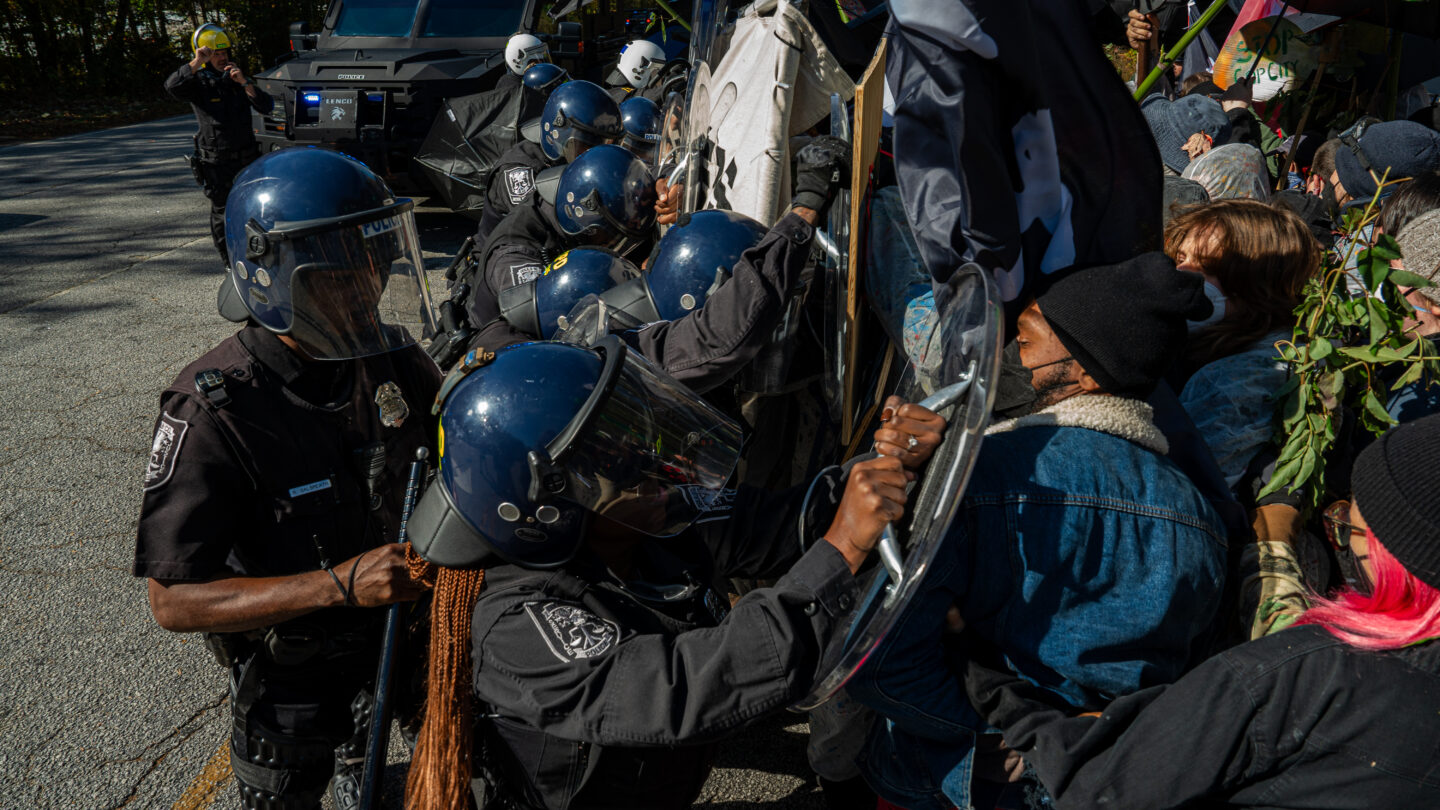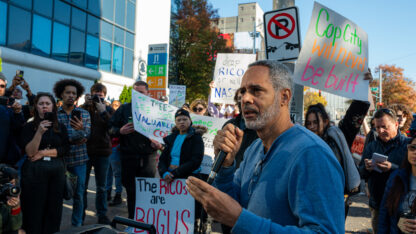A Georgia judge chastised state prosecutors Wednesday for mishandling confidential emails between a defense attorney and three Atlanta activists who face racketeering charges connected to protests against a planned police and firefighter training center that critics call “Cop City.”
Fulton County Judge Kimberly Esmond Adams said the Georgia Attorney General’s Office committed “gross negligence” by allowing privileged attorney-client emails to be included among a giant cache of evidence that was distributed months ago to investigators and dozens of other defense lawyers who are representing 61 defendants charged last year in a sweeping racketeering indictment against the “Stop Cop City” movement.
During Wednesday’s hearing, defense attorneys for Marlon Kautz, Adele MacLean and Savannah Patterson asked Adams to disqualify state prosecutors from the case and to dismiss the indictment, saying the court needed to “send a message” that such significant errors cannot be tolerated.
“They’re not evil, they’re not malicious, but there has to be deterrence,” defense attorney Don Samuel said of the prosecutors. Samuel said he was shocked to learn that his emails were included as exhibits in a report prepared by low-level Atlanta police intelligence analysts who combed through the defendants’ Gmail accounts after authorities executed a search warrant on the defendants’ home and for their Google accounts.
Adams did not immediately rule on the issue and said she wasn’t sure whether the errors would be enough for her to disqualify Deputy Attorney General John Fowler and his team from the case. But she said she found the investigators’ conduct “egregious” and that it is “not credible” for the prosecutors to continue to claim that they had no idea that confidential emails would be contained in the Gmail accounts.
“To suggest that you did not contemplate the possibility that there might be communication between … any of these defendants and their lawyer is incredible to me,” Adams said. “I simply don’t believe that.”
Prosecutors have acknowledged the mistake but insist that no investigators have read the intelligence report that contains the confidential emails. They also argue that because the error was not purposeful, it should not be grounds for disqualification.
“When we realized what had happened, with all candor, I was sick,” Assistant Attorney General Hallie Scott Dixon told the judge. “It was extremely upsetting as a prosecutor to find out that this had happened.”
Samuel said he had repeatedly urged prosecutors to hire a “filter team” to review evidence and sequester any confidential communications before investigators could begin to pore over it. But he said prosecutors have still not put a team in place and that it’s far too late to fix the situation: “The horse is out of the barn — the herd of horses are out of the barn.”
Atlanta Solidarity Fund leaders Kautz, MacLean and Patterson were arrested on charges of money laundering and charities fraud in May 2023 when investigators raided their Atlanta home, striking a blow against the organization which has played a central role in bailing out numerous “Stop Cop City” activists in recent years.
The three were then included among 61 indicted on racketeering charges last August, with authorities saying the Atlanta Solidarity Fund had been used to funnel money toward funding violent acts against property around the city of Atlanta, including the site in DeKalb County where the facility is being built.
Demonstrators and civil rights organizations have condemned the racketeering indictment and accused Georgia Attorney General Chris Carr, a Republican, of levying heavy-handed charges to try to silence a movement that has galvanized environmentalists and anti-police protesters across the country. Opponents say the 85-acre, $110-million facility will worsen police militarization and harm the environment in a poor, majority-Black neighborhood.
Despite various attacks against the site and contractors’ equipment over the past couple of years, construction on the training center has continued. Supporters say the city must replace outdated facilities and that it is key to better train officers to avoid improper use of force.
Samuel said the emails that were mishandled contained “serious, substantive” messages about legal strategy, money laundering laws and how Georgia’s Racketeer Influenced and Corrupt Organizations (RICO) law works. He also gave the judge a copy of some of the emails for Adams to read over privately so she could have a better sense of what the messages entailed.
Adams said she would weigh the matter and told prosecutors she hoped they would learn a lesson about what can happen when they decide to “proceed with an indictment of this magnitude.”









